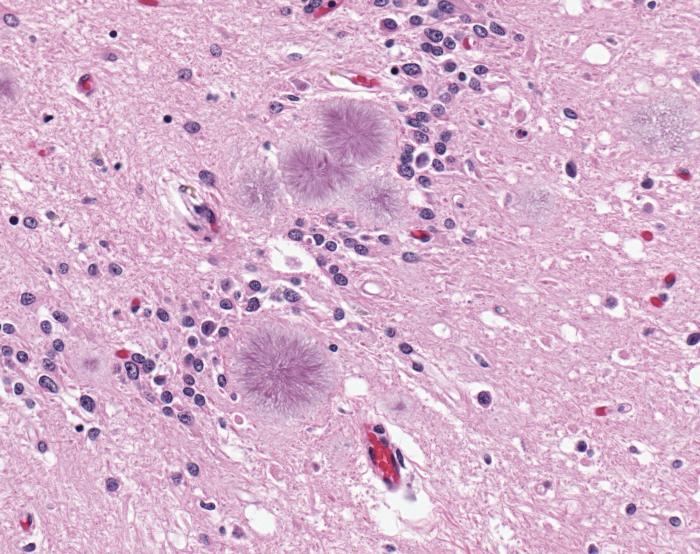In a follow-up to a report last week about a possible Creutzfeldt-Jakob Disease (CJD) case at a Fayetteville, Arkansas hospital, the Department of Health (ADH) said in a release:

The Arkansas Department of Health (ADH) learned this week that in December of 2015 Washington Regional Medical Center in Fayetteville performed surgery on a patient who was later diagnosed with possible Creutzfeldt-Jakob Disease (CJD). The time frame for risk of exposure to this disease for a select group of patients who also had surgery at Washington Regional began December 16, 2016 and ended before March 16, 2016. Washington Regional Medical Center is working to identify each surgical patient’s risk of exposure and will notify those patients.
CJD is a rare brain disease that affects approximately one person per million people worldwide per year. CJD occurs when a normal brain protein changes into an abnormal form called a “prion” and accumulates in brain cells. CJD can occur sporadically, from genetic mutation, or it can be acquired. It is not easily transmitted from person to person. There have been an estimated 250 cases of CJD transmitted surgically through invasive medical procedures involving the nervous system, and only 6 of those cases were due to the use of surgical instruments. There has not been a reported case of CJD transmitted by surgical instruments since 1976.
There is no specific treatment or therapy that has been shown to stop the progression of the disease. There is currently no easy diagnosis for CJD. Physicians often make a presumptive diagnosis of CJD on the basis of the typical signs and symptoms and progression of the disease. Testing of the cerebrospinal fluid can indicate CJD; however, a confirmed diagnosis of CJD requires testing of brain tissue obtained either at biopsy or autopsy.
CJD patients have a range of neurological symptoms that get worse as the disease progresses. Symptoms may include: failing memory, difficulty with walking, blindness, and problems with common activities of daily living.
The ADH is taking this situation very seriously and will continue to work with Washington Regional Medical Center and the Centers for Disease Control and Prevention.
Related:


Thursday, March 17, 2016
Preliminary Diagnosis Creutzfeldt-Jakob Disease Confirmed in Patient that had Lumbar Puncture at Washington Regional Medical Center
http://creutzfeldt-jakob-disease.blogspot.com/2016/03/preliminary-diagnosis-creutzfeldt-jakob.html